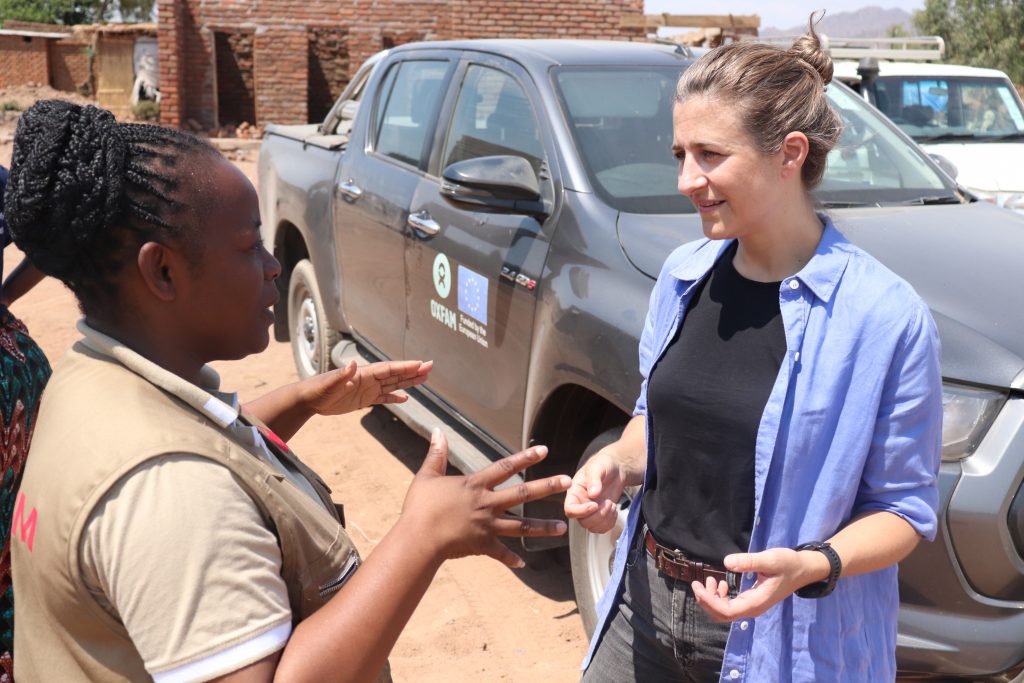Economic Inequality in Focus: Leaning out may be a better solution for many women
Last month, Prime Minister Trudeau attended the United Nations Commission on the Status of Women in New York. He used the occasion to declare once again, that he is not afraid to call himself a feminist. At global forums like this Oxfam joins forces with other civil society groups to pressure policymakers to turn impassioned speeches into concrete action all year round. This year Oxfam pushed for leaders to tackle the structural economic inequality preventing women from exercising their rights and receiving fair compensation for their work.
Much discussion on women’s economic inequality has been fuelled by the book Lean-In, Sheryl Sandberg’s much-debated how-to for women climbing the corporate ladder. The book has made Sandberg a feminist icon for many, but has also received criticism for how it overlooks core structural inequalities that keep women, and especially poor women, from participating equally in social, economic and political life. If you’re a single African American mom doing shift work in LA, leaning in might not be enough. You may need the system to change – like to provide a federally regulated $15 an hour minimum wage. The conversation generated by Lean-In has been good, but more conversation needs to be had about how women can actually lean out – and that’s in the unpaid care economy.
Based on global statistics from the Organisation for Economic Co-operation and Development, women do on average 3 to 6 hours of care work (such as cooking, cleaning, child care and eldercare), while men do between 30 minutes and 2 hours. If you’re a woman living in a poor country the burden is much bigger. You’re likely to have more children, and thus more child-caring to do. So much so, that when combined with fetching firewood and looking after sick relatives, you’re not going to have time to go to school. As a result, your paid work becomes inconsistent and low-waged. Unpaid care work limits paid work, and it can also limit women’s participation in society.
Removing the gender norms associated with care responsibilities and crafting government policy that will redistribute these responsibilities more equally among men and women is the unfinished half of the women’s revolution.
Globally we have seen examples of positive initiatives that reduce the care burden on women: investment in localized water and sanitation systems or innovative energy solutions like the rocket stove. We need to build on gender-smart social infrastructure with investment in universal public services — whether free healthcare in Zimbabwe or affordable childcare in Canada — so that we can redistribute care work as well as reducing it.
Change starts with recognition. We all need to acknowledge that women’s unpaid work is propping up the economy, and at the same time, the economy is letting women down. While women need to lean out in order to help set a new normal in relation to care-work, we also need to get organized. Now is the time for us to push for our leaders to translate feminist words into concrete action—and develop a society and economy that works for the many, not just the few.
Kelly Bowden is the acting director of Policy and Campaigns at Oxfam Canada.
LEARN MORE:
- Read Oxfam Canada’s report on income inequality: Making Women Count;
- Follow us on Facebook and Twitter.

